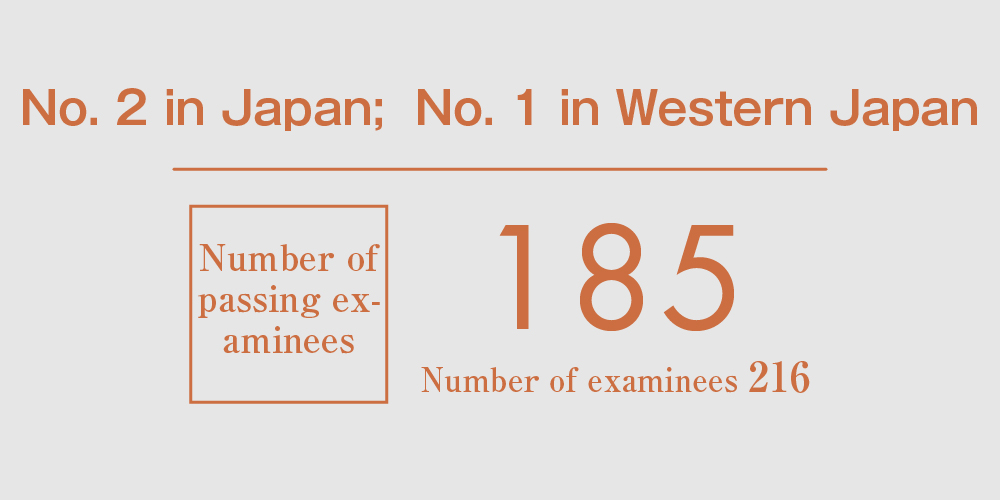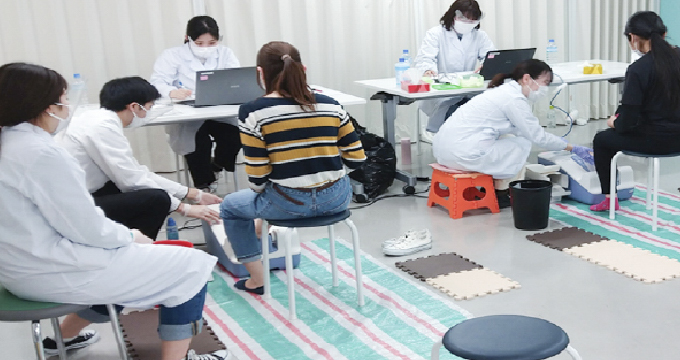Academics
Undergraduate
Academics
Undergraduate
This Department trains registered dietitians who are equipped with advanced nutrition science knowledge and practical capabilities, who possess wide-ranging perspectives, high ethical standards, and a sense of missions, and who will lead the next generation of a healthy society in fields including health, medical care, and welfare.
The number of students who passed the 36th National Examination for Registered Dietitians was 218, one of the highest showings in the nation. The Department maintains this capability through thorough guidance possible only at Nakamura, which boasts strength in obtaining qualifications.


This is of the few Departments offering a curriculum that enables acquiring a junior high school/high school teacher’s license (home economics), as well as registered dietitian and nutrition teacher licenses. Students can also aim to become home economics teachers who promote food education through expertise in foods.

"Nutrition Clinic" provides nutritional guidance to local residents, "Health Promotion Center" investigates and researches lifestyle-related diseases, "Institute of Preventive and Medicinal Dietetics" analyzes the relationship between food and health,we have established 「the Food & Health Innovation Center」 on campus to encompass all of these activities.

Acquire knowledge of nutritional management tailored to the needs of each life stage and era.For example, you could learn about sports nutrition and in the future provide nutritional support to athletes.
The Department of Nutritional Sciences aims to train registered dietitians capable of contributing to health maintenance and improvement in subjects, prevention of onset and aggravation of illness, enhancement of quality of life, etc. In particular, it fosters human resources who are able to contribute to society through scientific viewpoints and thought, to help achieve appropriate nutritional condition and dietary habits matched to subjects.
The Division seeks persons who are equipped with knowledge, skills, capabilities, sense of purpose, and ambition as follows.
The Department sets a curriculum that allows students to systematically study specialized education subjects consisting of “General Education Subjects,” “Basic Subjects,” and “Specialized Subjects,” as well as “General Seminar” and “Clinical Practice” that integrate these subjects. The Department also offers practical studies through introductory education, technical education for food preparation and development of foods, and unique programs that assume varied clinical situations.
The Department awards a Bachelor’s degree (Nutritional Sciences) to persons who are equipped with specialized knowledge and technical skills in nutritional sciences and communication capabilities, as well as practical leadership ability as persons supporting the improvement of dietary habits, promotion of health, and prevention of illnesses, and who, based on a sense of ethics and sense of mission as professionals, are able to contribute to society with high aspirations in the domains of health, medical care, welfare, long-term care, and education.